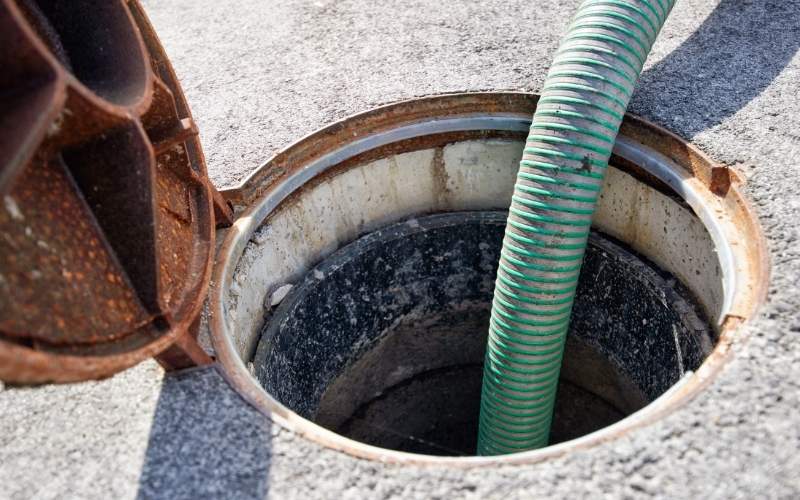
Wastewater 101: Understanding the Role of Septic Tank
- Jan 16, 2025
- | 11
Every flush, shower, and dishwasher cycle produces wastewater that needs to go somewhere. If your property isn’t connected to a municipal sewer system, a septic tank becomes the key player in safely managing this waste. While septic systems often operate out of sight and out of mind, they are vital to your home’s plumbing system and environmental health.
Let’s dive into the role of septic tanks, how they work, and why partnering with an experienced septic tank contractor is essential to keep your system running smoothly.
How Does a Septic Tank Work?
Septic tanks are underground containers designed to collect, treat, and manage wastewater from your home. They provide a simple yet effective solution for properties in rural or off-grid areas. Here’s how the process works:
Wastewater Flows In
When you use water at home, it travels through your plumbing system and into the septic tank. This includes everything from toilet waste to water from sinks, showers, and washing machines.
Separation of Waste
Inside the tank, wastewater separates into three distinct layers:
Scum: The top layer consists of fats, oils, and grease that float to the surface.
Effluent: The middle layer is primarily liquid and contains treated water.
Sludge: The bottom layer is made up of heavier solids that sink to the bottom.
Bacterial Breakdown
Naturally occurring bacteria in the tank begin breaking down organic material, reducing the amount of solid waste. This process helps prevent the tank from filling up too quickly.
Effluent Discharge
The liquid effluent flows out of the tank and into the drain field, where it is further filtered through soil. This natural filtration process removes harmful bacteria and nutrients before the water re-enters the groundwater system.
Why Is a Septic Tank Important?
Septic tanks play a critical role in ensuring the safe disposal of wastewater. Without them, untreated waste could contaminate soil, water, and local ecosystems. A properly functioning septic tank:
- Prevents health hazards by containing and treating waste.
- Protects the environment by filtering harmful contaminants.
- Reduces strain on municipal sewer systems.
- Offers an independent solution for properties not connected to public sewage.
The Role of a Septic Tank Contractor
While septic systems are designed to be low-maintenance, they aren’t maintenance-free. Over time, solids build up in the tank, and the drain field can become less effective. This is where a septic tank contractor comes in.
1. Regular Inspections and Maintenance
Septic tank contractors conduct regular inspections to ensure your system is functioning properly. They check for cracks, leaks, and clogs that could lead to costly repairs if left unattended.
2. Septic Tank Pumping
Every 3-5 years (depending on usage), your septic tank needs to be pumped to remove excess sludge and scum. Contractors use specialized equipment to clean the tank and keep it operating efficiently.
3. Repairs and System Upgrades
Septic tanks, like any other infrastructure, can wear out over time. A professional contractor can handle repairs, replace damaged components, or even upgrade your system to meet modern standards.
4. Drain Field Management
The drain field is a crucial part of your septic system. Contractors ensure it remains effective by addressing issues like clogging or over-saturation, which can cause backups and foul odors.
Signs You Need a Septic Tank Contractor
Even with regular maintenance, problems can arise. Watch out for these warning signs that your system may need professional attention:
- Slow-draining sinks, toilets, or showers.
- Gurgling sounds in your plumbing.
- Unpleasant odors around your yard or drains.
- Standing water or soggy patches near the drain field.
- A sudden spike in lush, green grass above your septic tank.
If you notice any of these issues, don’t delay—call a trusted septic tank repair Miami FL to diagnose and resolve the problem.
Environmental Benefits of a Well-Maintained Septic Tank
Septic systems do more than just manage your household waste—they help protect the environment by:
- Preventing groundwater contamination.
- Reducing nutrient pollution that can harm local ecosystems.
- Supporting sustainable wastewater management.
Proper care of your septic system ensures that it works efficiently and minimizes its impact on the environment.
Partner with a Trusted Septic Tank Contractor
Your septic system is an investment in your home’s functionality and safety. To keep it running smoothly, you need a reliable septic tank contractor who understands the unique needs of your system.
At Septic Masters, we specialize in septic tank maintenance, pumping, and repair services. With years of experience and a commitment to quality, our team is here to help you protect your home and the environment.
Don’t wait for problems to arise—schedule a septic system inspection today and enjoy peace of mind knowing your wastewater is being managed effectively.




